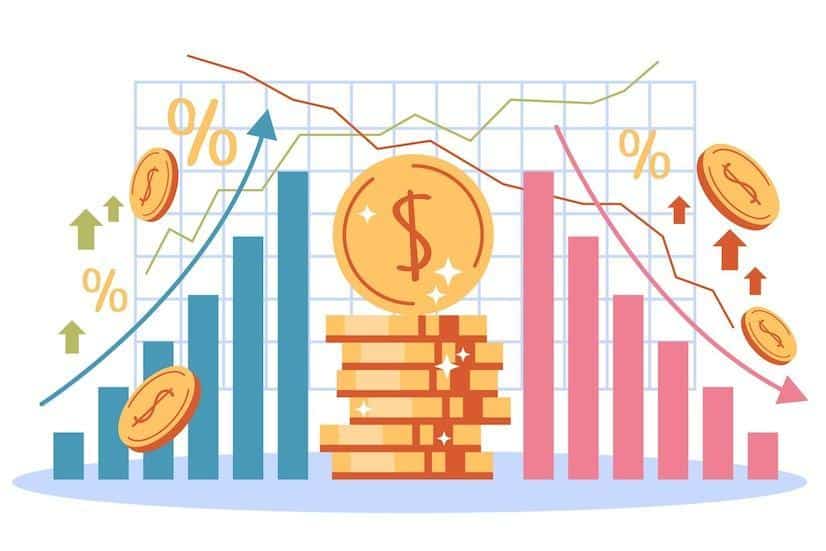Learn about the profound impact of economics on society and the important role it plays in modern education. How understanding economic principles gives people the knowledge to cope with financial difficulties, make informed decisions, and contribute to economic prosperity.
Economics affects every aspect of our society, and teaching it to future generations is a prioritized task of educators. Today, students are exposed to economic concepts at a younger age, regardless of their field of study. A solid foundation in this domain helps them understand the surrounding world, how it interacts with a global economic system, and how they contribute to it as individuals.
Given the strong emphasis on economic education, it is much easier to explore fundamental principles and practical scenarios through numerous introductory and specialized programs. From market theory to personal finance, economics covers a variety of topics that will provide you with adequate knowledge and applicable skills to make informed decisions that can contribute to economic growth.
The Importance of Economic Education
Learning economics is beneficial to both the individual learner and the nation’s economy as a whole. From a student’s perspective, economic education empowers them to use their money more wisely amid the increasingly complicated environment. On the other hand, economic knowledge translates into a stable, growing economy fostered by smart consumers and safe investment.
One of the reasons for studying economics is to understand your finances better. What is more relevant than knowing about your savings, loans, house ownership, employment policies, and retirement plans? Indeed, a strong background in economics allows you to improve economic security by overcoming challenges and adapting to the ever-changing global landscape.

Overall, an investment in economics education is essential, especially in a knowledge-based economy like ours. Students are highly encouraged to enroll in economics courses and stay aware of the current economic setting. More importantly, they can equip themselves with the desired problem-solving abilities and decision-making skills that turn risks into opportunities.
Economics Education Programs: Which One to Choose?
Searching through countless courses and programs, you might be overwhelmed by the extensive number of topics and discourses on economics. Some offer a real-world relevant approach, while others focus on theories and principles. Whether your interest lies in macroeconomics or microeconomics, make sure you choose the best-suited program to accomplish your objectives.
Online Courses from Coursera, edX, etc.
Online learning platforms like Coursera and edX offer free, reliable courses on economics that require just a few clicks to register. Some of the popular specializations covered are game theory, microeconomics principles, and monetary policy. Learners can also enroll in certificate and degree programs if they have the time and budget for more advanced studies.
Whether you are a beginner or an expert in economics, online courses offer a unique, flexible advantage over offline ones. Without having to commute or reschedule other responsibilities, students can get a great education from prestigious institutions across the globe. Furthermore, online courses are relatively cheaper, allowing them to save some extra money for other needs.
IB Economics
For a more interactive classroom experience, IB Economics is an ideal choice for students from 16 to 19 years of age with dynamic, practical course content. Encompassing six real-world issues that represent nine key concepts, the program is the most well-rounded one for students to adopt basic principles and evaluate the current market. On top of that, multiple IB economics tutors are available to enhance the learning process, adding an advantage to this rigorous program.
A-Level Economics
A-Level Economics is another outstanding resource for economics education, with content ranging from individual economic decision-making to the international economy. Such diverse concepts provide comprehensive knowledge of the subject while the assessment scheme ensures course outcomes. Specifically, students must demonstrate coherent reasoning through their extended responses to given questions at the end of the program.
AP (Advanced Placement) Economics
The two separate AP programs in economics are AP Macroeconomics and AP Microeconomics. Both are semester-long courses that teach the basics, such as supply and demand, as well as more specialized topics at the college level. Upon completing either course, students will be able to analyze different economic concepts using charts and graphs. A notable thing about AP is that it does not require high math skills, and students at the basic mathematics level can easily pass the exams with flying colors.
Summer Programs
There are thousands of summer programs in economics offered by universities and higher education institutions all over the world. Students will participate in short-term learning courses that usually last over the summer vacation. Some of the most renowned courses are the Cambridge Economics Summer Program and the LSE Summer School. They follow the same standards as regular classes at the host institution, allowing high school students to experience a university teaching environment before their college admissions.
Career Opportunities With an Economics Degree
An economics degree opens the door to fascinating, lifelong career opportunities in both the public and private sectors. Employers highly appreciate economic decision-making skills, and being an economics graduate gives you an advantage when sending in your CV to business operation positions. A majority of economics students enter financial institutions as business analysts or become researchers at governmental offices. Either way, they all excel at their work and enjoy a fulfilling career in the field they have chosen.


